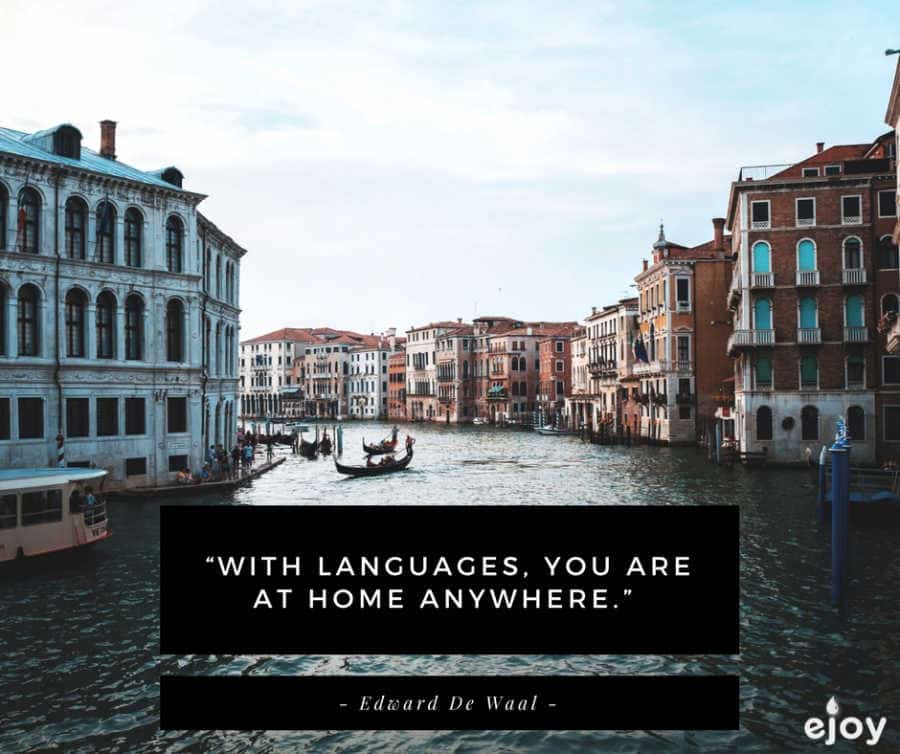When it comes to learning vocabulary, as an English learner, you may sometimes get confused by words that have similar meanings (synonyms). In fact, there is a slight difference when we put them in a certain context. In this post, we are going to focus on some of the most common confusing words in English to help you better understand the difference among them.
Listen and hear
We use the verb “LISTEN” when we are concentrating, paying attention or trying to hear as well as possible. “LISTEN” is an action; it is something we do consciously.
And remember, when “LISTEN” has an object, it is followed by “to”.
For example:
Listening to music in the morning is one of the best ways to enlighten your new day!
On the other hand, we use the verb “HEAR” for sounds that come to our ears, which means we receive sounds using our ears without paying attention or waiting for them.
For example:
Can you hear someone talking in the living room?

So what’s the difference? Well, as explained above, our ear will hear the sound, whether you want to or not, but you can totally decide whether you want to listen to the sound.
Sometimes we can use either HEAR or LISTEN to, depending on whether we want to emphasize the event or the action.
For example:
- Did you hear the interview with John Mayer on the radio yesterday? (emphasis on the event – the interview)
- Did you listen to the interview with John Mayer on the radio yesterday? (emphasis on the action – listening to the interview)
See, look and watch
“SEE” means to notice or become aware of (someone or something) by using our eyes, which mean we use the verb “SEE” to say that something ‘comes to our eyes’ without necessarily paying attention.
For example:
Lauren sees the sun shining in the window and knows it’s time to start a new day!
“LOOK AT” means to direct your eyes in a particular direction. When we look at something, we direct our eyes in its direction and pay attention to it.
For example:
Looking at those old pictures makes me realize how fast time went by.
We use “WATCH” when we look at (someone or something) quite intensely and pay attention to what is happening (usually, the object is moving).
For example:
- Don’t spend too much time watching TV.
- I love sitting in a street cafe watching people passing by.

NOTE:
In some cases, we can use either “SEE” or “WATCH”, depending on the location of the object you act on. In particular, we use WATCH, not SEE, when we refer to something on the television.
For example:
I watched “Before midnight” last night. (I was watching the movie on TV)
We don’t use WATCH when referring to a film in the cinema.
For example:
I saw “Before midnight” last night. (I was at a theater or cinema)
Next activity
What will you choose to complete the following sentences?
- Be quiet, please. I’m ______ the radio.
- Can you speak a little louder? I can’t ____ you.
- ____ carefully to what I’m going to say.
- Rob and I are ____ the game between Nadal and Federer.
- _____ Federer, he’s gonna hit an ace.
- Rob ____ Federer at the supermarket last Friday.
So, I hope you now comprehend the difference between those common confusing words in English after reading the post. What are English words you find most confusing? Share with us in the comments and don’t forget to check out our other posts to improve your English!
>>> Wanna learn more confusing words in English? Click here!
English language has a great number of confusing words which are sometimes challenges for learners. The best way to understand how to use English vocabulary correctly is to learn it in context. So how do we learn vocabulary in context? Well, I guarantee eJOY eXtension will be your perfect answer! This extension is a tool that helps you look up new words, save them to your wordbooks while you’re watching videos or reading news on the Internet so that you can review them in the future. What’s more, eJOY eXtension allows you to play many interesting word games. So cool, isn’t it?















